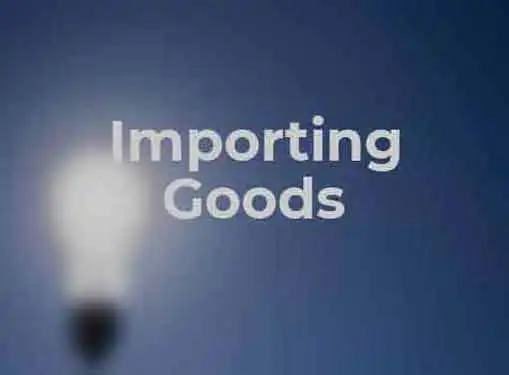Import Business
Importing Goods Purchased on the Internet
The Internet has opened up the world of global commerce to consumers as well as small businesses. But before you fire up the laptop and make an international purchase online, you had better understand the import and customs implications.
In the global economy, the Internet has become a valuable tool for selling and buying across international borders.

Instead of visiting foreign merchants in person, U.S. buyers can now visit a webpage, view the merchandise, place an order, and wait for the shipment to be delivered to their doorstep, right?
Not so fast. Any and all foreign goods that are shipped to the U.S. are subject to Customs and Border Patrol (CBP) regulations, regardless of whether or not they are purchased for commercial use. So when Aunt Tilda goes online and buys that Black Forest cuckoo clock she's always wanted, CBP automatically classifies her as an importer - and holds her to the same standards as any other importer of foreign goods into the U.S.
Consumers and small business owners need to recognize the fact that shipping and importing are not necessarily the same things. When a foreign merchant agrees to handle shipping, it doesn't necessarily mean that he will handle the applicable import and customs requirements. If you aren't careful, your merchandise could easily be held up at the port of entry or even be returned to its country of origin.
Internet Purchase Import Considerations
The first hurdle is whether or not the product can be legally imported into the U.S. For example, if you find a great online deal for Cuban cigars, you're wasting your money because there is no way customs will allow your smokes to enter U.S. borders. If the product can be legally imported, the process will require you to submit accurate information about the product, its value, and its intended use.
When it comes to shipping, the alternatives are a freight courier service or international postal service. It's important to understand the difference and to clarify the shipping method with the seller. If shipping does not include door-to-door delivery, you'll need to either hire a customs broker or process the shipment through customs yourself.
Importing Procedures
International postal service is probably the best option for items valued less than $2,000. As long as the items don't violate customs regulations, a CBP agent will complete the paperwork, assess duty, and prepare it for delivery. Items under $200 are even easier to process. Duties can be paid at the local post office where you receive the package.
More valuable or complicated imports may require the assistance of a customs broker who can expedite the shipment through the customs process. CBP usually processes these deliveries more quickly and as the buyer, all you need to do is sign for the package when it arrives.
Share this article
Additional Resources for Entrepreneurs





Conversation Board
We greatly appreciate any advice you can provide on this topic. Please contribute your insights on this topic so others can benefit.